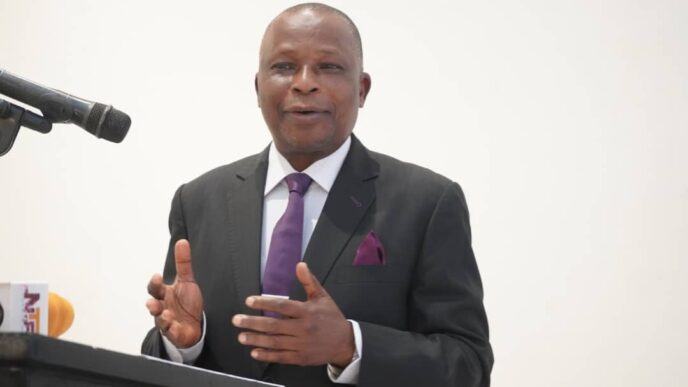Mosquitoes transmit malaria
The World Health Organisation (WHO) says Nigeria is among five countries with the highest burden of malaria globally.
In its latest malaria report released on Wednesday, the organisation said there were an estimated 263 million cases of malaria in 2023 globally.
The WHO said the figure represents an increase of 11 million cases from the previous year.
The report noted that the WHO African region continues to carry the heaviest burden of the disease, accounting for an estimated 94 percent of malaria cases worldwide in 2023.
Advertisement
“The WHO Eastern Mediterranean Region has experienced a 57% increase in incidence since 2021, rising to 17.9 cases per 1000 population at risk in 2023,” the report reads.
“The top five countries carrying the heaviest estimated burden of malaria cases in 2023 were Nigeria (26%), the Democratic Republic of the Congo (13%), Uganda (5%), Ethiopia (4%), and Mozambique (4%).”
According to the report, the number of deaths due to malaria was estimated at 597,000 in 2023, with a mortality rate of 13.7 per 100,000.
Advertisement
“The number of malaria deaths and the mortality rate steadily decreased from 622,000 and 14.9 deaths per 100,000, respectively, in 2020,” the WHO said.
“The WHO African Region continues to carry the heaviest burden of mortality, with 95% of estimated malaria deaths worldwide.
“Between 2000 and 2023, an estimated 2.2 billion malaria cases and 12.7 million malaria deaths were averted worldwide, with 1.7 billion cases and 12 million deaths prevented in the WHO African Region alone. In 2023 alone, more than 177 million cases and more than 1 million deaths were averted globally.”
Tedros Ghebreyesus, WHO director-general, said as of December 2024, 17 countries had introduced WHO-recommended malaria vaccines through routine childhood immunisation, and more countries are readying their own rollouts.
Advertisement
“A new generation of nets that provide better protection than pyrethroid-only nets are becoming more widely available,” he said.
“Malaria remains a formidable challenge. By working together, tailoring interventions to local settings, harnessing innovation, and maintaining a relentless focus, we can regain momentum and move towards our shared vision of a malaria-free future.”












